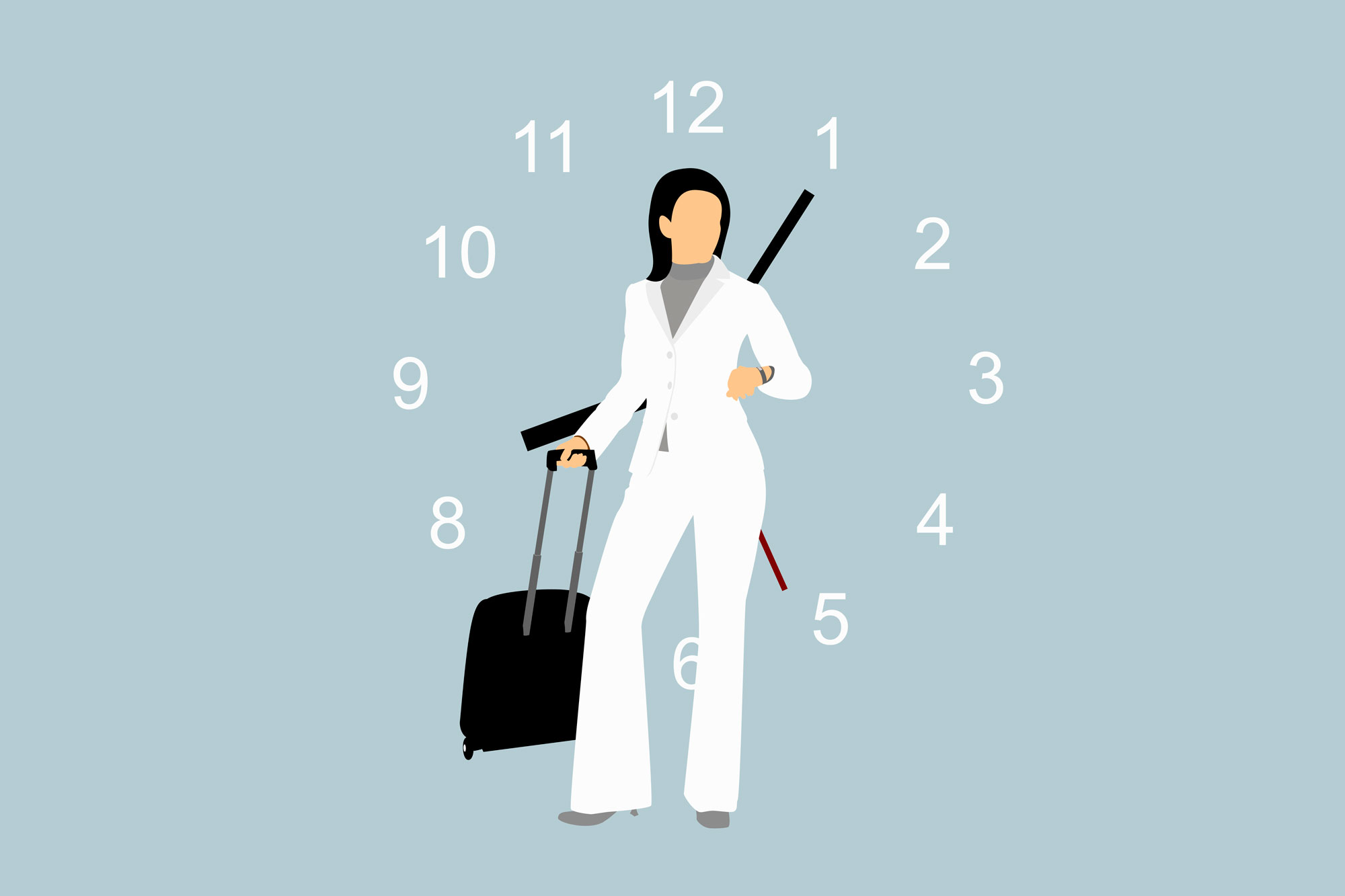As kids as young as six months are now finally eligible for vaccines and the world fully reopens after two years of disrupted travel, long-haul travel is on the cards once again. Whether it’s a tropical getaway or a culture-filled city trip, traveling halfway around the world comes with one big downside: jet lag. Bad jet lag can really eat into the enjoyment of the beginning of a trip and make it difficult to readjust when you’re settling back in at home again.
A trip from NYC to New Zealand where the time difference is 16 hours could mean it might take a couple of weeks to fully get adjusted.
Jet lag happens because of different time zones. The bigger the time zone jump you do — essentially the further you travel — the worse it is. “It happens because of confusion between the timing of your internal body clock with the local time at your destination. This results in insomnia and daytime sleepiness, as your body attempts to sleep and wake at the wrong times,” he added. It can show up in different ways for different people but there are some commonly spotted symptoms. “These include disturbed nighttime sleep, increased daytime sleepiness, impaired mental performance, increased irritability, and low mood,” says Dr. Guy Meadows.
The general rule of thumb is that it takes one day for every hour of time shift. So, a trip from NYC to New Zealand where the time difference is 16 hours could mean it might take a couple of weeks to fully get adjusted. Though research shows that when you travel to a place with a different time zone, your body naturally adjusts, by the time that happens you could already be on your way back home. However, traveling doesn’t need to be ruined by jet lag. Here, we ask the experts for their tips to combat it…
Meet the Experts
Dr. Guy Meadows is the co-founder and clinical lead at Sleep School.
Geraldine Joaquim is a clinical hypnotherapist, psychotherapist, and wellness coach.
Book your flights right
It can often be tempting to just book the cheapest flight but choosing times based on jet lag can really improve your trip. Considering the idea that you want to get on the new time as quickly as possible, flights that land in the afternoon can be a good option. “Then you only have a few hours before going to bed – landing in the morning makes getting through the whole day really hard work,” Joaquim pointed out.
Prep before you travel
If you really want to maximize that vacation, prepping so your body clock is closer to the new time zone can really make all the difference if your schedule enables you. For example, if you’re traveling east, Dr. Meadows suggests going to bed and getting up an hour earlier each day for three days before traveling. “This will reduce the time difference between you and the local destination,” he noted.
Set your watch as soon as you board
Changing your watch or other time-telling devices to the time zone of the new destination helps you work out when you should be sleeping in line with where you will be spending your trip.
Stay healthy on the flight
Wherever possible, say no to the junk food freebies, it will only make you feel worse on the flight and after. Geraldine Joaquim also advises avoiding caffeine and alcohol. “Caffeine is a central nervous system stimulant which could interfere with your new sleep patterns and while alcohol can have a sedative effect it also raises your body temperature which is a cue for your brain to be awake,” she pointed out. When it comes to food, avoid anything too highly processed. “It will make you feel heavy, dehydrated, and create a blood sugar rollercoaster. Plenty of fresh fruit, vegetables, and high fiber foods will help to keep your gut happy.”
Stick to the new time zone on arrival
It can be tempting when you’re tired to just let yourself fall asleep but in the long run, it’s best to push through until the normal bedtime of the time zone you’re now in. “Ideally, you want to stay awake for at least 10 hours before attempting to sleep in your new time zone,” Dr. Meadows confirmed.
Eat during the local time in your new destination
In a similar vein, make sure your meals align with the timings of where you now are. This will help your body adapt to the new time zone quicker. “When we engage in these behaviors they activate a network of peripheral clocks, which inform the master clock in the brain of the local time, helping you to synchronize to the new local timezone,” Dr. Meadows highlighted.

Exercise when you get there
While you may want to just fly and flop (especially if it’s a beach vacation), a little bit of exercise can really help you reset your body clock. “Making yourself physically tired will help you sleep — and drink water. Dehydration will make you feel sluggish and add to any feelings of having a wooly head,” Joaquim said.
Get as much sunlight as possible
“Sunlight is your circadian rhythm — the body’s internal clock — biggest cue, so exposure to natural light will help move it along in the right direction,” Joaquim said. Get as much light as you can in the daytime in your new destination and you’ll be more likely to sleep at night.
We only recommend products we have independently researched, tested, and loved. If you purchase a product found through our links, Sunday Edit may earn an affiliate commission.














